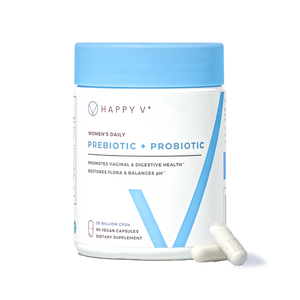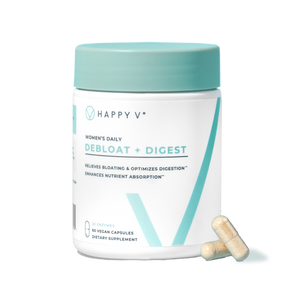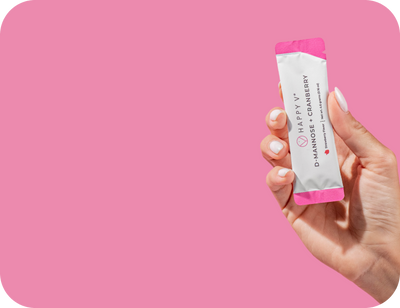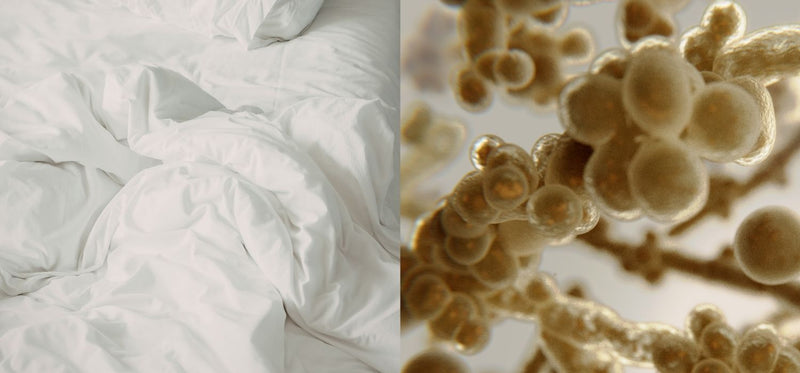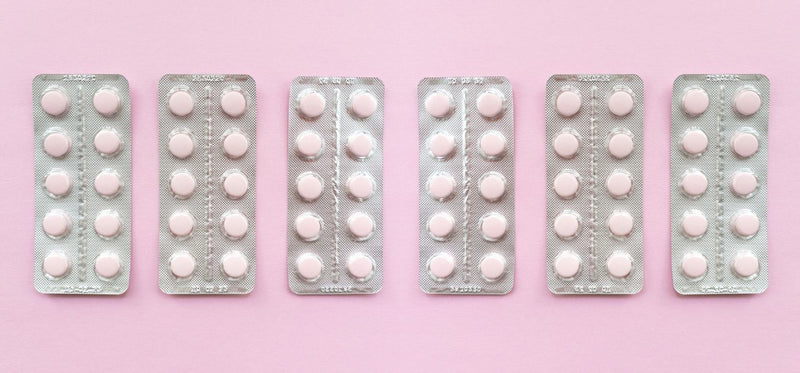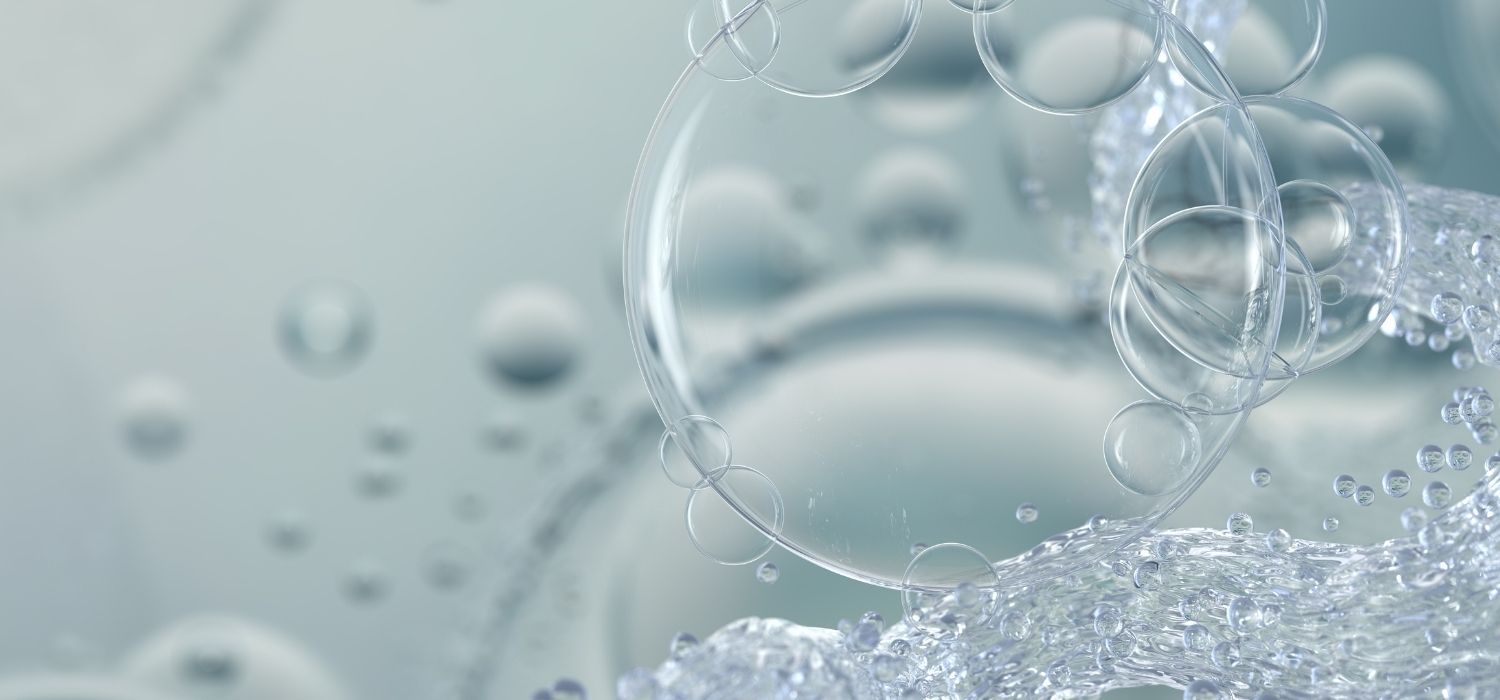
- Fact Checked
- July 18, 2025
- 6 min read
Hydrogen Peroxide for BV: Good or Bad?
Table of Contents
Table of Contents

If you have been struggling with the itch, fishy odor, and vaginal discharge associated with bacterial vaginosis (BV)—and especially recurrent bacterial vaginosis—you may be feeling desperate to find a home remedy that will finally break the cycle of infection and restore your vaginal health.
It’s important to know that while the internet is full of home remedies that promise an end to vaginal infections like BV, UTIs, and yeast infections, not all of these home remedies have been proven to be effective in clinical trials. More than that, some suggestions just may be downright unsafe.
To talk about home remedies for BV symptoms, we brought in an OBGYN with over 20 years of clinical experience, Dr. Barry Peskin. He will share what works, what doesn’t, and what’s unsafe, starting with one of the most asked-about home remedies: hydrogen peroxide.
This post is for informational purposes only and does not constitute medical advice. See full disclaimer below.
Is Using Hydrogen Peroxide an Effective Treatment Method for BV?

Douching with hydrogen peroxide is a popular home treatment for BV, but Dr. Peskin does not advise it—at all:
“Hydrogen peroxide douching is not a safe or efficacious treatment for bacterial vaginosis,”
- Dr. Peskin
Why? Because using a douche—especially one filled with an antiseptic like hydrogen peroxide—flushes healthy bacteria from the vagina1, affecting your overall vaginal health. One of the most important bacteria that hydrogen peroxide douching can affect is a probiotic known as lactobacillus2. Lactobacillus is responsible for maintaining a slightly acidic vaginal pH, which kills infection-causing bacteria before they can cause symptoms3. Without enough lactobacillus, your body will not have enough natural defenses against vaginal infections like BV and yeast infections4.
Healthcare providers across the board recommend against vaginal douching at any time, for any reason. It’s especially dangerous, however, for pregnant women.
Clinically Proven Treatments for BV

If hydrogen peroxide doesn’t work to get rid of recurrent BV, what does? Dr. Peskin says there are several options; some are available as a prescription, some are over-the-counter, and others are natural home remedies.
Antibiotics
Many healthcare providers would agree that antibiotic therapy is the first-line treatment for bacterial vaginosis. Doctors usually recommend antibiotics such as oral metronidazole pills, clindamycin creams, or tinidazole tablets to combat BV symptoms and bacteria overgrowth5.
However, antibiotics are not without side effects. Like douches, antibiotics kill both good and bad bacteria, which can make you prone to BV recurrence or to secondary infections like vaginal yeast infections6. Dr. Peskin says they are also not safe to take regularly, as it may increase the likelihood of bacterial resistance.
Luckily, there are proven, natural home remedies you can try if you want to avoid another round of antibiotics.
Probiotics for Bacterial Vaginosis
While tea tree oil and boric acid suppositories are both popular home remedies for BV, the only one Dr. Peskin recommends to his patients based on clinical data alone is vaginal probiotics, especially one like Happy V that contains proven strains of that pH-balancing lactobacillus probiotic that we mentioned earlier.
These proven strains, when they populate your vagina, will release natural hydrogen peroxide that will help to resolve BV symptoms like vaginal odor and itch and also increase your natural defenses against recurrence. When hydrogen peroxide-producing lactobacilli are present in the vagina, they may inhibit the growth of bacteria, regulate pH, and displace pathogens, or bad bacteria, within the vagina so they don’t compete for prebiotics.
For 26-year-old Shanice, who struggled with BV for years, Happy V probiotic supplements were the one thing that finally broke the cycle. Shanice says:
“I was so desperate for help with my BV, I was asking ChatGPT for products. I showed them to my boyfriend, who is a doctor, and he said, ‘Try Happy V first’ because it had ingredients the others didn’t, and it worked. With Happy V, my symptoms cleared up—totally. I don’t have to worry about anything anymore. I’m so free.” - Shanice
Though high-quality probiotics are generally considered a safe BV treatment, you should always seek the medical advice of a professional before beginning any new kind of supplement.
Other Ways to Prevent BV

The vaginal microbiome is a delicate, complex thing, influenced by many lifestyle factors.
If your vaginal health is suffering, look into making lifestyle changes like:
- Avoiding harsh chemical washes in your vagina. The genital area is extremely sensitive7, and the use of any harsh soaps or chemicals may cause problems including irritation or dryness. Instead, wash the genital area with warm water only to cleanse the vagina without damaging it.
- Discontinuing douching. As we’ve discussed, douching depletes your body’s stores of good lactobacilli bacteria and increases your risk of developing a vaginal infection8.
- Using protection during sexual intercourse. Using protection during any kind of sexual activity can help preserve your body’s good bacteria and reduce your risk of infection (both vagina and STIs)9. If you have a male sex partner, use chemical-free latex condoms. If you have a female sex partner, use a dental dam to prevent the sharing of bacteria, and wash any sex toys thoroughly before sharing them.
- Changing your diet. Your vaginal flora and the bacteria living within are both incredibly influenced by what you eat10. Focus on limiting processed sugar and getting lots of yogurt, fruits, and vegetables in your diet.
- Wearing cotton underwear. Synthetic fibers like nylon trap moisture, allowing bad bacteria to grow more quickly in the vaginal environment. Opt for breathable cotton underwear instead11
Ditch the Hydrogen Peroxide & Get Happy
Long story short, if you have been considering hydrogen peroxide douches to treat your BV, don’t. There is no clinical evidence that any form of douching benefits women’s health. On the contrary, it can make you more prone to infections like bacterial vaginosis. Instead, talk to your healthcare provider about Happy V’s Prebiotic + Probiotic, made using clinically proven strains of lactobacillus at clinically proven doses, to help relieve uncomfortable symptoms and prevent them from coming back.
Disclaimer: This blog is for informational and educational purposes only and is not intended to diagnose, treat, cure, or prevent any disease. Statements about supplements have not been evaluated by the Food and Drug Administration. For more information about vaginal infections, visit the CDC or speak to a licensed healthcare provider.
